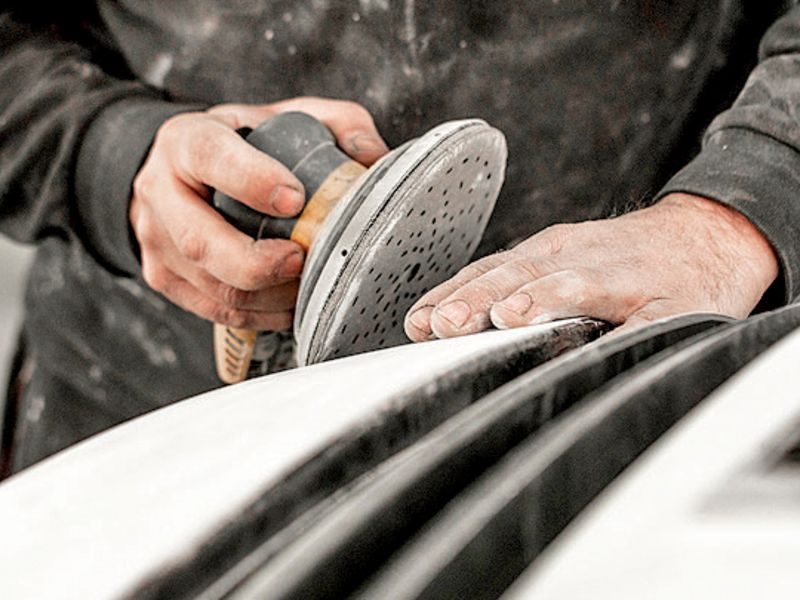
For years, the body shop has been a profitable component of the fixed operations at Westside Lexus in Houston, the first Lexus dealership to be named a certified collision center of the year by Toyota Motor Sales USA Inc.
Westside Parts and Service Director Robert Parnell says the collision shop generates profit from labor and materials, and selling replacement parts bolsters the bottom line in the parts department. The dealership also does a good business in repairing Lexus vehicles under direct-repair programs with insurance companies.
“We’re very happy to be in the body shop business and always have been. I can’t imagine that ever changing,” he says. But collision repair business at Westside and at dealerships across the country has fallen dramatically — 50 percent or more at some shops — after stay-at-home directives during the coronavirus pandemic sharply curtailed traffic, and as a result accidents, on city streets and state highways.
Given the current situation, some antsy dealers may be wondering if they should stay in collision repair. Before deciding whether to cut bait, Larry Edwards, chairman of Edwards & Associates Consulting in Purlear, N.C., suggests stepping back and giving the body shop an arm’s length, critical appraisal with a SWOT analysis — business-school jargon for assessing the strengths, weaknesses, opportunities and threats to the operation.
“A dealer can do a SWOT analysis on their business if they’re willing to be honest with themselves and do an honest appraisal of where they are,” Edwards says. “From a SWOT analysis, a dealer can quickly determine what they need to do to make it a viable operation and a profit-contributor to the dealership.”
Though business is slow now and dealers face growing threats from body-shop consolidators such as Caliber and Service King, Edwards says dealerships still have strengths they can leverage to make collision repair a profitable part of fixed operations in the future. Namely, original equipment parts, factory-trained techs and direct access to the manufacturer’s engineering and technology.
Moreover, even the well-heeled consolidators may not want to spend on expensive tools and specialized equipment required by some automakers to maintain warranties.
Westside’s Parnell thinks dealerships will have an edge as vehicles become more complex and manufacturers adopt more exacting requirements for parts and repairs.
“In today’s world, if you’re a body tech or you’re on the mechanical side, you’re either a Lexus tech or a Mercedes tech, but you ain’t both,” he says. “I’m not saying you don’t have the ability to fix it, but you don’t have the ability to fix it and get it right the first time efficiently and profitably.”
He says independent body shops do “pretty good” work but are finding it tougher to keep up with the technology required to fix vehicles these days. “The independents will tell you that it costs them a lot more money to keep up with all the software and everything,” Parnell says.
The National Automobile Dealers Association says that 38 percent of franchised dealers had on-site collision shops last year. Edwards doubts that will increase, but he says dealers could get a bigger slice of the repair business.
“As the technology increases, the number of people that can repair the vehicle declines,” he says. “You would be a fool to try to work on a Nissan Leaf if you haven’t had training on how to discharge [the batteries] and how to properly handle the voltage in those things. Some cars have [dozens of] computers, and if you don’t know where they are, you’re going to start frying some expensive hardware.
“All of those things are pushing the collision repairs back towards the dealership.”
Andy Church, COO of Dealer Solutions Mergers and Acquisitions of Toronto, says none of his clients has talked about bailing from collision repair. Some, in fact, are looking to acquire independent shops that don’t have the cash to weather the current slowdown.
“In mergers and acquisitions, if you’re well capitalized and you have a business foundation to support it, it’s not opportunistic,” he says. “It can be a win for a small body shop that’s faced with the choice of, if they can’t pay their employees and they can’t pay their vendors, maybe [selling] is a positive move because they can leave the business with dignity and maybe even in a profitable way.”
Though uncertainty continues to hang over collision repair, there were signs that more motorists were venturing out in early May. The Federal Highway Administration said interstate traffic May 4-10 was down 29 percent compared with a year earlier and 34 percent higher than in early April. In Texas, traffic volume in early April was down 44 percent compared to late February, but by early May it was down 28 percent.
Church says they shouldn’t think only of shrinking their collision repair operations in this environment.
“Don’t look at this as the time to cut all of your advertising, all of your relationships,” he says. “Don’t go into a shell, and don’t be a turtle and hide your head.”